Keywords: Economic Benefits
There are more than 200 results, only the first 200 are displayed here.
-
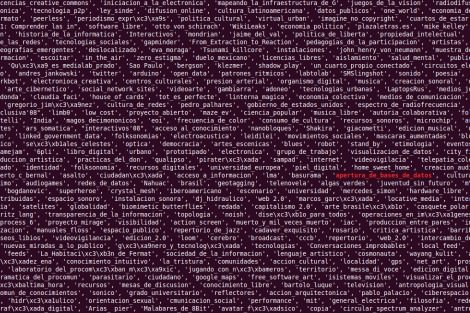
AUSTRALIA
- Kate Galloway
- 06 October 2016
3 Comments
The Productivity Commission was charged in March to inquire into 'data availability and use'. The inquiry holds important implications for Australians because our personal information is collected and stored by business and government in nearly all our daily interactions. The inquiry's terms of reference however make a number of assumptions, making it look very much as though it will find that the benefits of making data available outweigh the costs. And those costs are likely to be our privacy.
READ MORE 
-

AUSTRALIA
- Andrew Hamilton
- 05 October 2016
5 Comments
In political commentary liberal politics and identity politics are often presented as polar opposites. For supporters of liberal politics the relationship between the two is one between virtue and vice, rationality and emotion, the wise against the mob. I believe that the relationship is more complex, that identity politics shares the same stunted assumptions about personal and national identity as liberal politics, sees the self-interest of the latter, and wants to despoil it.
READ MORE 
-

AUSTRALIA
- Andrew Hamilton
- 28 September 2016
8 Comments
There is much to welcome in the ideals spruiked in Minister Porter's proposed welfare reforms. Who could fail to be delighted if people are helped to support themselves, and the welfare bill is reduced as people no longer need support? The question left hanging is what drives these changes. Is the human welfare of our fellow Australians the goal towards which the budgetary changes are a means? Or are budgetary savings the goal to which the treatment of our fellow Australians will be a means?
READ MORE 
-
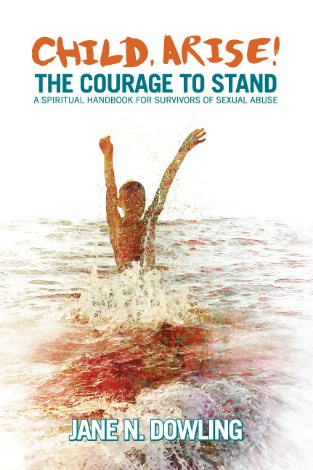
RELIGION
- Andrew Hamilton
- 01 September 2016
15 Comments
Dowling, who was a victim of clerical abuse, offers a program of reflections that bring together scriptural themes and the effects of sexual abuse. Most striking is the extraordinary labour required to purify the language of a tradition that has become polluted. This is vital not simply as a therapeutic exercise but as a condition for renewal and reconciliation. It may also be pertinent to wider society, where Brexit and the Trump phenomenon have been characterised by a coarsening of public language.
READ MORE 
-
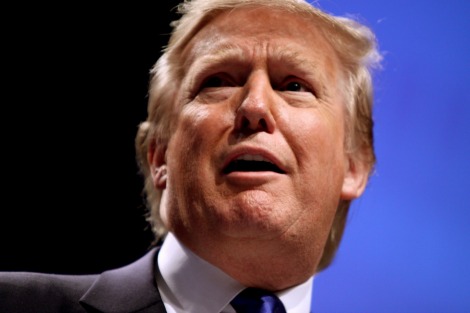
INTERNATIONAL
- David James
- 09 August 2016
15 Comments
The main legislative catalyst for the GFC was the repeal, in 1999 by Bill Clinton, of the Glass Steagall Act, which had prohibited commercial banks from engaging in the investment business. This allowed the investment banks to indulge in the debauch of financial invention that almost destroyed the world's monetary system. Trump has made the reinstatement of Glass Steagall official policy. Should that happen, it could be the most beneficial development in the global financial system for decades.
READ MORE 
-
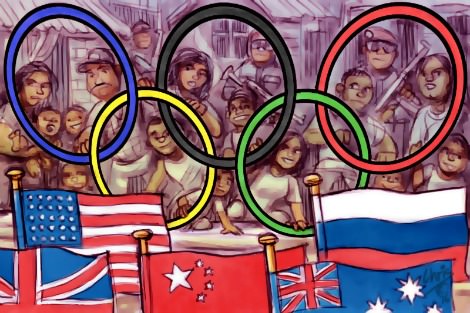
INTERNATIONAL
- Antonio Castillo
- 08 August 2016
4 Comments
The Rio 2016 Olympics has earned a well-deserved label: the jogos da excludad, the games of exclusion. It is a label that shames a ruling class that got its priorities wrong. In the name of the Games, 77,000 residents of Rio's favelas have been evicted and hundreds of these settlements have been bulldozed. Those favelas that avoided the bulldozers have been hidden behind concrete walls that epitomise what theologian Leonardo Boff has called the 'lack of shame' living deep in the Brazilian soul.
READ MORE 
-
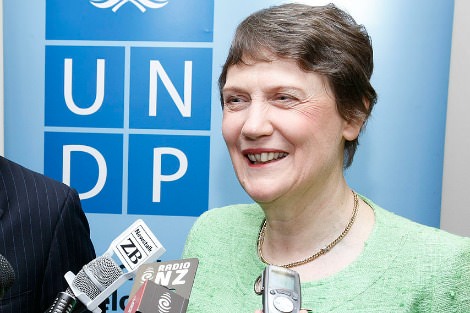
INTERNATIONAL
- Fatima Measham
- 01 August 2016
6 Comments
The United Nations Security Council is in the process of selecting its next secretary-general. There is intense interest, not least because the General Assembly has made efforts to make it more transparent via an open nomination process and televised debates. The UN is seen in some parts as an edifice to bureaucratic ineptitude. But the internationalism that stitched the world back together after two calamitous wars has frayed. We need the UN as ballast against future instability.
READ MORE 
-
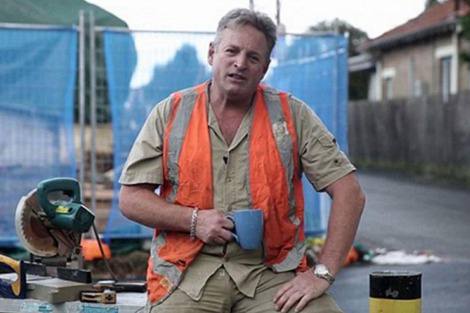
AUSTRALIA
- Brendan Byrne
- 27 June 2016
15 Comments
Whether or not the person in the now notorious 'fake tradie' ad is or isn't a 'real' tradie is irrelevant. What is relevant is that it is a primary example of the co-option of the language of class struggle and economic justice that has so thoroughly poisoned economic debate in the industrialised West. Implicit within it is a patronising view of the working class that dismisses them as gullible dupes who can be made to entrench the privilege of the few in return for the paltry crumbs of consumer hedonism.
READ MORE 
-
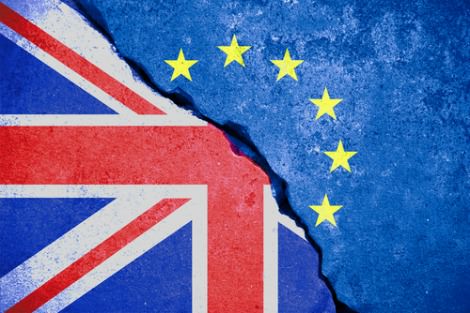
INTERNATIONAL
- Andrew Hamilton
- 23 June 2016
19 Comments
Some commentators in the Australian media have welcomed the prospect of Britain's leaving the EU. The founders of the union would recognise these commentators' hoped-for changes. They are precisely the conditions that contributed to the wars that they so feared: the xenophobia, disregard for human rights, chauvinism, military adventures entered by individual nations and competitive economic policies that alienated citizens and so bred authoritarian and ideologically inspired leaders.
READ MORE 
-
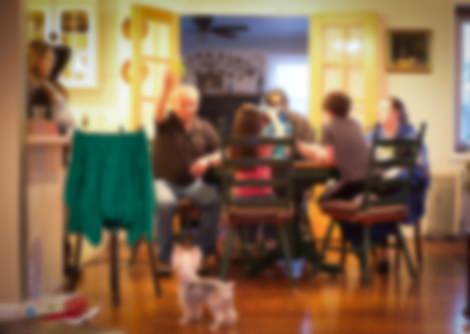
RELIGION
- Andrew Hamilton
- 19 May 2016
13 Comments
The bishops speak less trenchantly than Pope Francis, who criticises sharply the assumptions and practices of neoliberal economics. But in the context of this election, they add their voice to that of those who are concerned about economic assumptions that enrich the few and exempt corporations and business from social responsibility. Their statement will encourage those who see the now notorious behaviour of banks, finance business and corporations as symptomatic of a vicious economic ideology.
READ MORE 
-
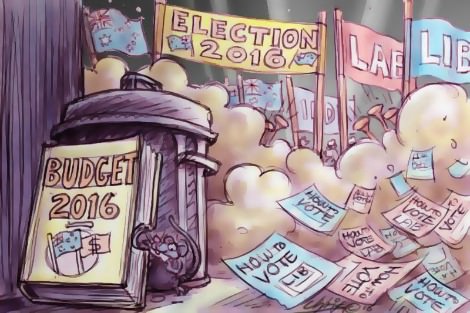
AUSTRALIA
- John Warhurst
- 06 May 2016
12 Comments
It was a political budget in a special sense, given the forthcoming election. Yet it turned out to be neither an election-winning nor election-losing budget. It was more continuity than change. In that sense it probably was the best the government could hope for given the nation's economic and financial circumstances. However it falls far short of the sort of budget that might have been expected from a prime minister like Malcolm Turnbull whose image is one off a 'big picture man'.
READ MORE 
-
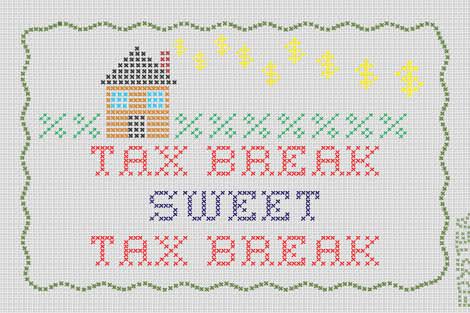
ECONOMICS
- Kate Galloway
- 28 April 2016
14 Comments
Historically, having a largely home-owning population has ensured both the social benefit of housing, and an economic benefit through enforced saving with long-term growth. In contrast, the negative gearing push splits the cultural and economic meaning of home ownership, because it focuses on investment. Negative gearing promotes property ownership but not home ownership. Thus the social benefits of home ownership that we have come to expect give way to bare economic indicators.
READ MORE 